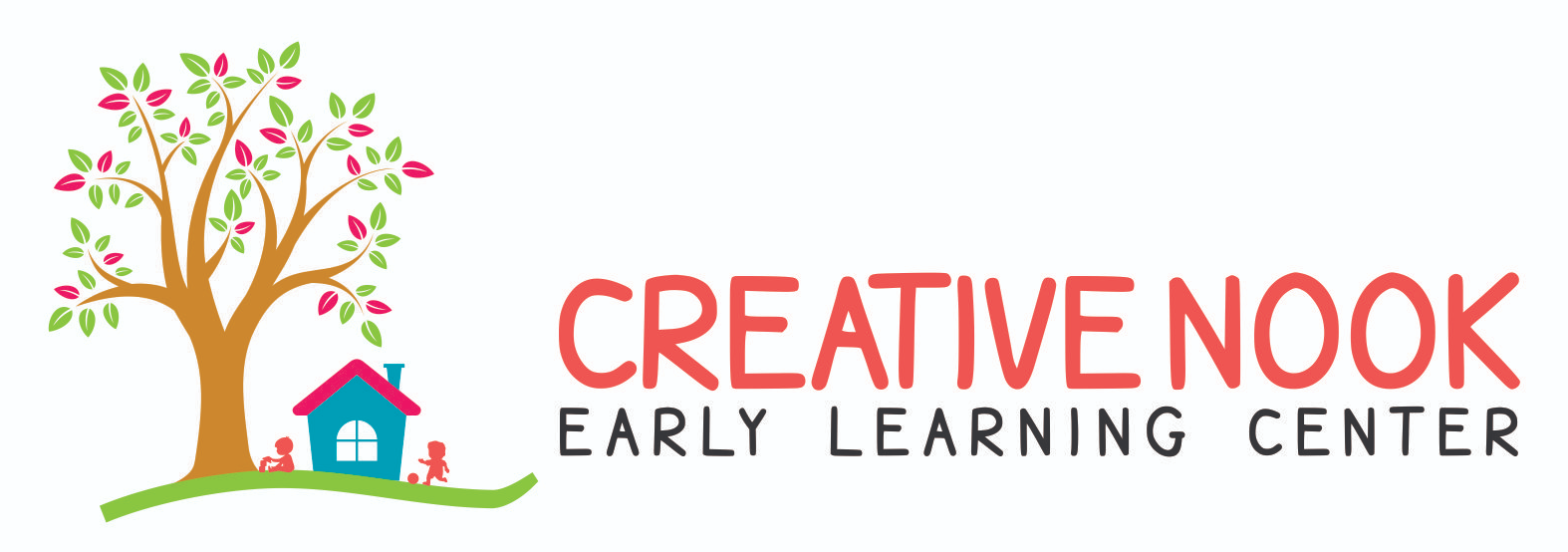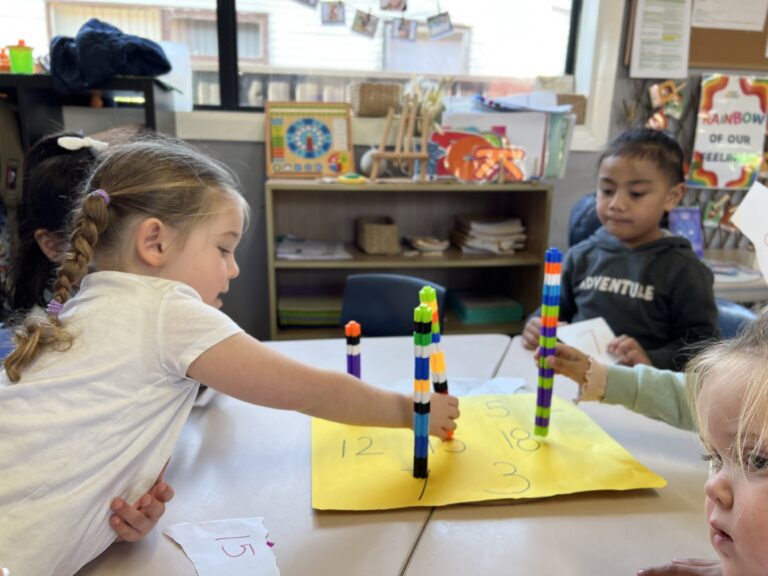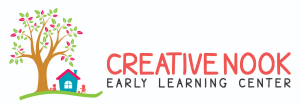Parents sometimes think that school readiness is all about writing their names and identifying numbers and letters, but it is much more than that. How many times we have heard, “My child doesn’t know numbers and letters”, or “I need him to know how to write his name.” or “Oh! My child does not like school, he can’t sit still for group time at school”. Or “The childcare did not help with their academic skills.”
However, as a parent, I will ask myself a question, “Does my child feel shy in asking a question to someone they are not familiar with?”, “Do they cry every time they don’t get their way.”, “ Do they have a short attention span and they only sit for few minutes when asked to join in some writing or reading activities?” If your answers are YES then STOP and rethink the importance of a good School Readiness program and what it involves.
Talk to your childcare educators and see what their focus is. If it is solely academic, then you are at the wrong place. The child may not engage in activities, because they may not have the social skills to turn-take or the ability to problem solve in challenging activities or patience to sit and listen to stories. The child missed out on developing these essential skills in the Childcare, because lot of focus was given to developing writing and reading skills.
So what is school readiness really?
At Creative Nook, School readiness is about the whole child approach. Children should be confident, socially independent and have the ability to communicate their needs positively with other adults and their peers. These skills are taught in the early years and are very essential for children to grow up to be independent, great problem solvers and have a sense of positive self-worth.
I know, we think that as the children will grow they will learn these skills as it comes. But studies have shown that young children when taught the correct way to express their emotions or self-regulate their emotions are better adults in challenging situations. They are more confident in dealing with stressful situations, especially work environments.
At Creative Nook Early Learning Centre, we believe that it is important that all children are provided with quality education and care to support their smooth transition to the primary school setting. As the curriculum in primary school expects children to have certain level of knowledge, skills and behaviours, we integrate various Literacy and Numeracy concepts with Early Years Learning Framework to support children in their social, emotional and educational development.
Where do we Start?
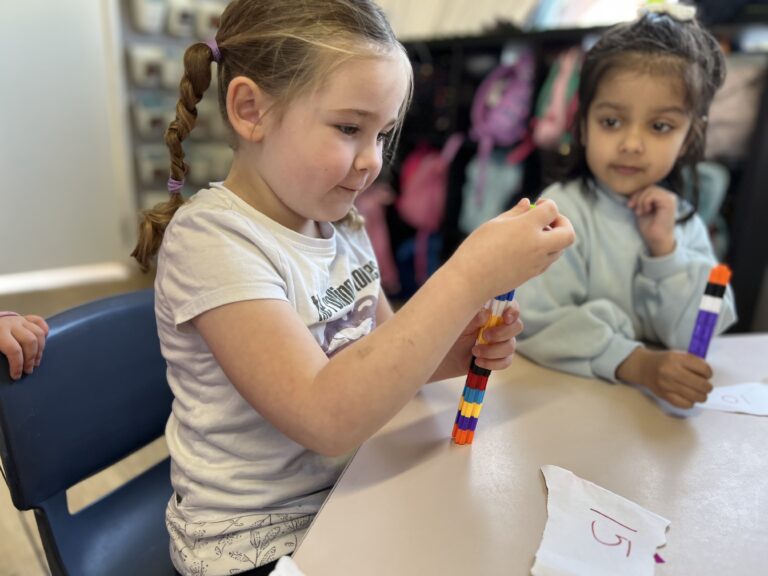
So let’s dive into the world of school readiness one step at a time!
Childhood is a journey not a race. Children should be part of PLAY which are inclusive of problem solving play, child-directed play and intentional play, allowing children to think rights and wrongs and help them develop critical thinking.
At Creative Nook, we believe that children learn through Heart, Hand and Head. If they like what they see, then they will pay more attention to it and it will then allow them to learn new concepts. Play-based learning capitalises on children’s natural inclination to be curious explorers and learners. Children actively construct their own understandings that contribute to their own learning. In play experiences children integrate their emotions, thinking and motivation that assists to strengthen brain functioning.
School Readiness is a concept that refers to the physical, socio-emotional, language and cognitive developmental milestones of children. School readiness is a transition that involves children to be able to confidently explore any new environment and experiences with confidence, enthusiasm and positive attitude.
Research indicates that pre-schoolers who attend high quality programs:
- Enter kindergarten with skills necessary for school success.
- Show greater understanding of verbal and numerical concepts.
- Are more socially competent.
- Show ability to stay with an activity longer.
- Are more likely to make typical progress through the primary grades.
- Are less often placed in special education classes.
- Are less likely to be retained in kindergarten.
Starting school is a big change not only for your child, but for the families too. You can find more information on how to best support your child from the Department of Education.
School Readiness Program At Creative Nook
Children should learn through play and participating in activities independently, where educators create hands-on, open-ended experiences for children to achieve their own goals- the goals set by children. We believe that each child is an individual who has the ability to gain knowledge in their own time.
Educators are mere facilitators and collaborators who work with families and children to allow them to reach their potential. Some regular activities that children are involved in our preschool room are:
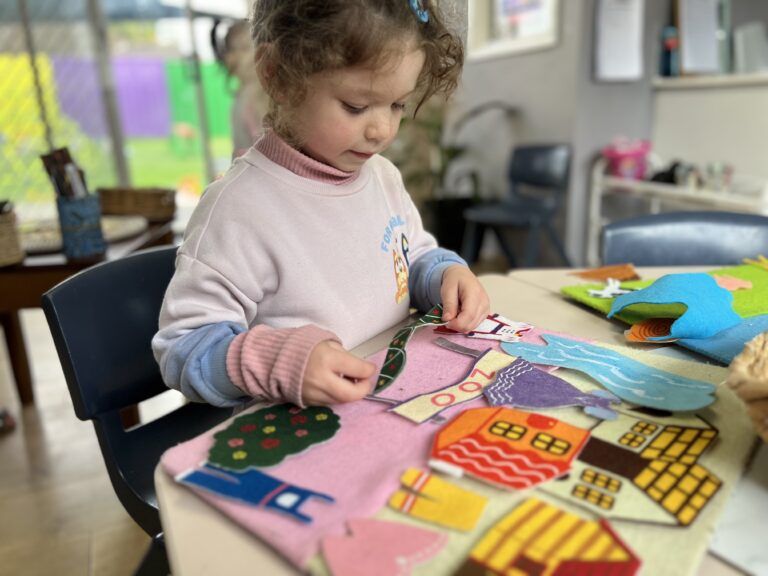
News time or Show and Tell
A great way for children to develop confidence, the concept of question and answer and story-telling. Children not only develop their vocabulary but also learn to listen others. Giving respect to peers and their contribution to learning and teaching.
Role play
Role play or dramatic play allows the children to develop their understanding of the world around them and how they fit in to the world. They learn to imagine, create stories and develop their individuality about their likes and dislikes.
Group Games
Group games like connect Four, build a bug or any other turn taking games allows children to develop self-esteem, self-confidence and ability to understand the fair play. A very essential skill for adults to work in a team environment. It also develops the concept of reading and writing as children are exposed to various texts in a variety of formats.
Open-Ended Play
Open ended play is a play with anything, anyway you like. Children are not bound by the concept of failure, so they will play and re-play the scenarios again and again. This allows them to be more creative, great thinkers and problem solvers.
Best kind of toys for this kind of play are not rigid or have formal instructions. They are multifaceted and versatile. For example, play-dough, kitchen utensils, PVC pipe cutouts, bottle caps and simple wooden blocks or any thing that children can get their hands on.
How does this help Children?
When children are directing their own play, they are learning the skill of decision making and this in return will help develop their self-esteem. It is also the best way to grow their confidence in a group setting as they learn to interact, negotiate and share constructively and creatively. We have a unique School Readiness Program to help our children succeed.
These skills are more essential for children before they start their school.
Our Unique School Readiness Curriculum
Social And Emotional Skills
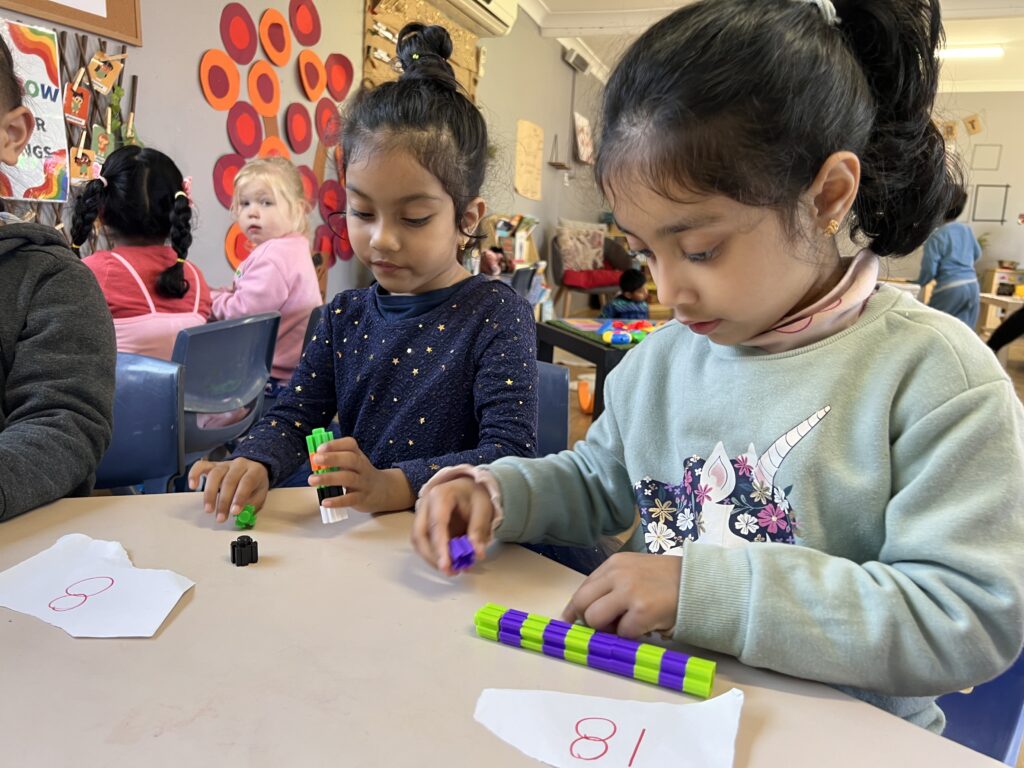
Children must be provided with support that helps them develop a positive attitude, respect for themselves and others and a positive disposition to learning. It is crucial to emphasize on social and emotional development of children as it supports their understanding of fair behaviour, how to behave in certain situations and learn to empathise when needed. It provides children with an opportunity to build positive relationships with others and advance their self-esteem and self-confidence.
Some activities:
- Singing and dancing in the group.
- Talent shows.
- Group play with open ended materials.
- Working in collaboration with younger peers, educators and community.
- Climbing, digging, running, outdoor play.
- Learning about environment and sustainability for better future (Learn to respect the nature).
- Self-help skills: being independent and helpful to others in need.
- Dramatic play, story reading for understanding feelings and relations.
- Understanding expectations through daily discussions.
- Encouraging positive role modelling by respecting children for who they are.
Reading
Reading various books like narratives, chapter books, and theme based stories will allow children to begin developing concepts on types of literature, imagination, critical review and fictional to non-fictional stories.
Some activities:
- News time.
- Story telling (make your own story, puppet stories, reading journals).
- List making (shopping list, wish list etc.).
- Questions and answers (remain on the topic).
- Recount of events and retell of familiar stories during dramatic play.
- Sight words: Displayed in their play.
- Group games: Pictionary, describe objects, follow instruction of machineries, I-spy.
- Story and the sequence- what comes after in the story?
- Play time with letters (Play dough letters, sand letters, word making).
- Familiarising with various literatures e.g., newspaper, flyers, signs and symbols, shopping list, letter and e-mail.
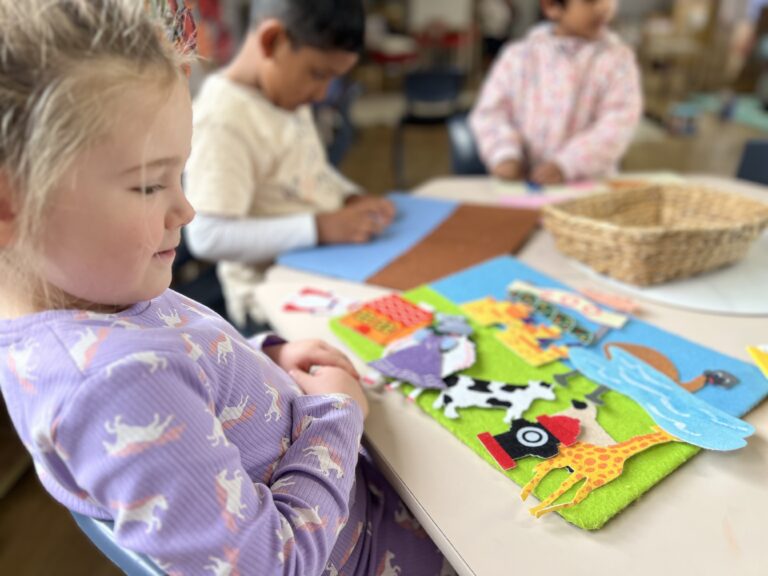
Writing
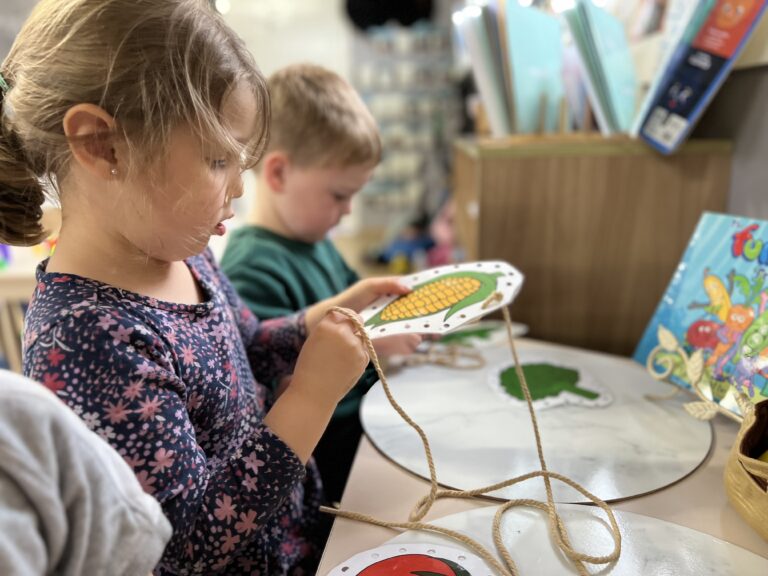
Before children learn to write it is important that they develop imperative pre writing skills.
Some activities:
- Threading, cross stitching, quercetti, peg boards, play dough and various construction play.
- Blunt edge scissors to encourage finger muscle development
- Chopping and cooking activities.
- Self-help skills- tying shoes, washing, cleaning and laundry folding.
- Writing names using various methods and objects.
- Drawing and painting using imagination and creativity (Images should represent object or a person, it must be recognisable).
- Finger painting and shaving cream play.
- Casually encouraging to write numbers and letters that means something to the child (Favourite words, colour, age, child’s name, family name).
- Learning to use time and calendar and identify importance of time and weather.
- Creating a working journal to understand importance of writing and value their own creativity.
Problem Solving Skills
Problem based learning is used in professions like medicine, politics and engineering. Many researches have proven the importance of problem based learning in developing children’s critical thinking, imagination and creativity as well as their cognitive development.
Some activities:
- Matching, memory games, strategic games and group games.
- Sorting, categorising activities based on numeracy.
- Map making, world map, directory play.
- Puzzle play, box construction and assorted PVC pipes play.
- Fractions (Sharing, counting, equal and fair).
- Less, more and equal game based play.
- Pattern creation using various objects (Grouping).
- Group games like “duck-duck goose, hide and seek, UNO, connect four, LEGO, go fish etc.
- Scenario game, “What if…”
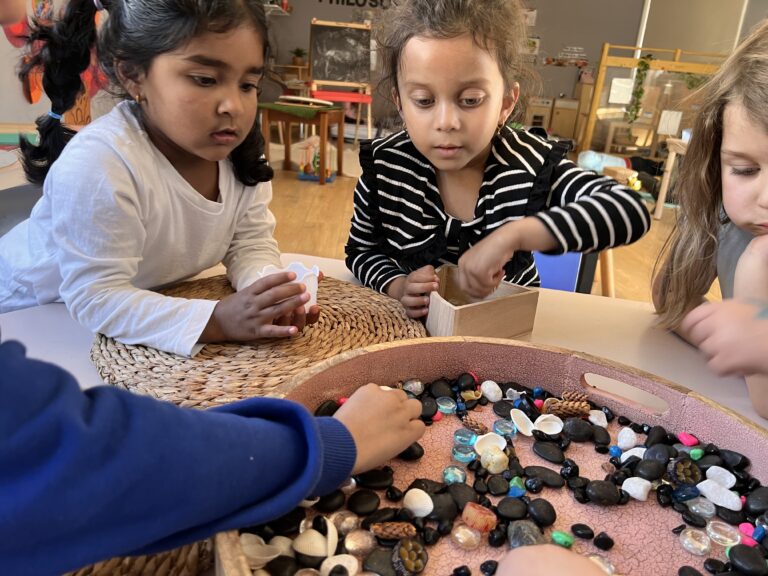
School Readiness is Multi-Dimensional
The best school readiness program also takes into consideration, families’ goals, their expectations and supports families achieve those goals at home too. So, What can parents do at home for school readiness:
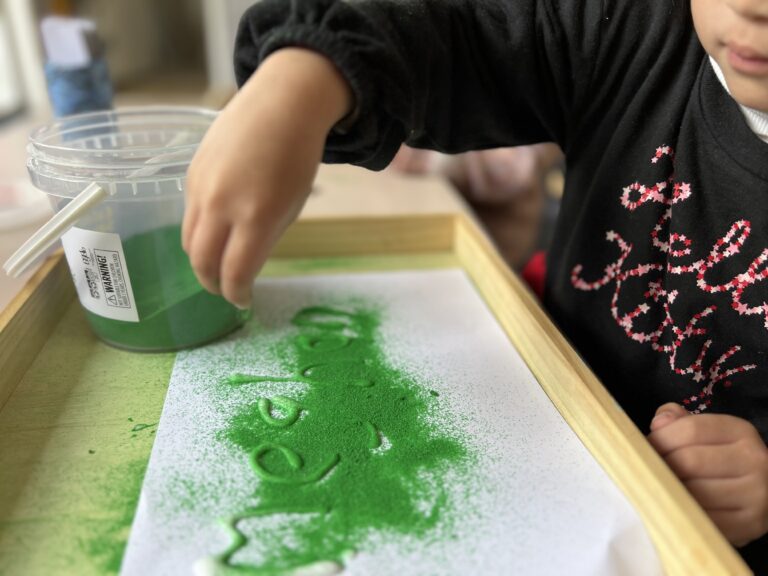
Play Dates
Organise play dates with children who are going to the same school. Communicate with your childcare and see which children are graduating and schools they will attend and create a network of parents to support children’s transition to school.
Board Game
Play board games with your child to teach them to turn-take, patience and coping when some one does not “win”.
Daily Activities
Engage children in daily chores. Eg. When taking bath, ask your children to turn thetap on, close the tap, dry their legs. Or Dinner time- ask them to set the table or take things out of the kitchen to the dining table etc. During daily activities, give multiple instructions to allow them to develop their cognitive skills and memory retention ability.
Walks
When going for a walk point out things and identify words that starts with specific letters.
Read Books
Books are great way to support children develop their listening skills, reading skills and vocabulary. Point each word as you read and talk about what happens next to enhance their imagination and recall skill.
Fine Motor
Cutting, pasting, cooking, gardening and drawing are fun ways to support children’s fine motor development at home.
Physical Skills
Engage in weekend sports with children. Play catch ball, tag and hide-n-seek at home with children. It will allow them to develop their social, physical and fair play skills.
No time for Flash Cards is a great resource for fun and educational activities to help your children develop these essential skills.
Conclusion
Learning takes place when children are actively involved in the environment of their choice. If the experiences created for children are positive, challenging and appropriate, they will flourish and develop all the required skills for their brighter future.
These environments like homes, schools and nature support children in developing various skills necessary for their positive growth, development and in becoming a person who will be responsible for the world’s future.
So yes. School readiness is a very important concept, but School Readiness will only work, if the correct environment is created for young children. We believe that Creative Nook Early Learning Centre is one of those environments that enables our future generation through our Unique School Readiness Program. Contact us to see how we can help your children be best prepared to start school.
